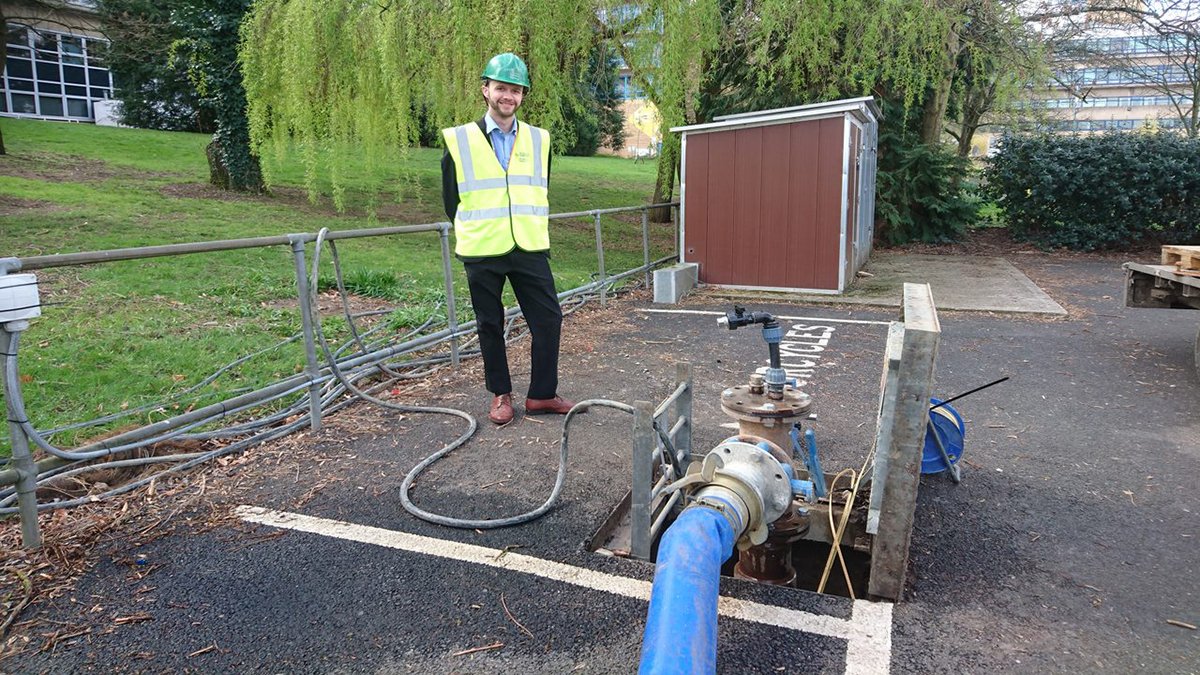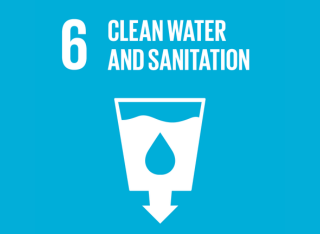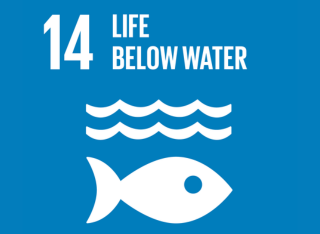
Water
We are working to reduce our total water consumption and associated demand on this scarce resource. We also recognise plastic impact on our ecosystems and therefore provide free drinking water on campus.
Reducing our water consumption
The University exceeded its initial 15% absolute water reduction target against the 2017/18 benchmark, but has undertaken a metering audit that has identified faulty meters and supplies not correctly metered. The University has therefore reset both the benchmark and the target reduction, noting a baseline of 395,374 cubic metres set for 2022/23 with an aim to reduce water use by 30% by 2029.
As well as the metering audit, the Sustainability Team have undertaken audits to understand where most water can be saved. This includes water used within the sports park swimming pool, hot water used for showering within student residences, water used for flushing toilets and water used in laboratories. From these audits, a Water Reduction Plan has been developed to continue this work, specifically looking at four different areas:
- Detecting leaks: this is done through a combination of the installation of strategic meters, pattern analysis, increasing reporting and a range of other methods including the use of heat-vision cameras.
- Reducing consumption: through changes in equipment, behaviour and usage in both residences and academic buildings.
- Independent supply: our Stag Hill campus benefits from an independent supply of water sourced from an onsite borehole, which helps to reduce both the costs and energy required for transportation.
- Preventing waste: we have implemented intelligent controls, and reduced flush and flow rates across our campus to prevent water wastage. This has resulted in a significant reduction in the amount of water that would have otherwise been potentially wasted. We are committed to continuously expanding this program to further reduce our environmental impact.
Key successes
- Installation of passive infrared sensors across almost all urinals saving over 60,000,000 litres of water per year.
- Leak detection work carried out with the help of a master's student in civil and environmental engineering identified a hidden leak saving approximately 8,400,000 litres per year.
- Other leak identification and repair work has saved over 20,000,000 litres per year.
- Work on our onsite borehole has been completed, reducing pressure on the local network and reducing the carbon emissions associated with pumping water to our Stag Hill campus. In the academic year 2021/22, the borehole provided over 180,000,000 litres of water. The site is now being used as an exemplar, providing a close and well-designed resource for enhancing the teaching of engineering and sustainability students.
These measures combined have saved the equivalent of 35 Olympic swimming pools worth of water a year!
Conserving water
The University estate and landscaping are maintained by a dedicated team of in-house staff. They employ a range of methods to conserve water:
- Adopting a water probe irrigation system to assess soil moisture, promoting targeted rather than widespread watering.
- Compost and mulch are used to retain moisture around trees and reduce the amount of watering required.
- The University has removed water fountain systems and replaced them with planted beds with drought-resistant species.
- The University has installed water-efficient shower heads in all of its bathrooms, along with an extensive meter network to detect leaks and other issues within our water systems.
Water Quality
The University discharges all wastewater via its drainage system to the local water provider Thames Water. Their network goes to a sewerage treatment station where it is treated and turned into potable water in a way that prevents pollution and contamination of local water courses. The University also has a number of Trade Effluent agreements with Thames Water which control the types of materials that can be discharged via the wastewater system – this includes suspended solids as well as hazardous fluids. The University has a hazardous waste management contract with a third-party provider ‘Grundons’ who takes waste from the University avoiding disposal down the drain.
Water usage and environmental care
The University treats wastewater from its Veterinary School and dilutes this before it enters the public sewers. Our Surrey Sports Park facilities have abatement systems to limit the flow rate of water into the public sewers and reduce pressure on infrastructure.
At our Stag Hill, Manor Park, and Surrey Research Park campuses, we have several ponds and lakes that not only improve the site's biodiversity but also function as abatement systems. They collect surface runoff using fuel interceptors and slow its entry into watercourses, reducing the risk of flooding. Additionally, these interceptors also prevent any spillages from entering the lakes.
The Control of Hazardous Substances Policy (PDF) aims to reduce the environmental impact created by the use or disposal of hazardous substances.
Water refill points
We recognise plastic's impact on our ecosystems, so we’re committed to reducing the use of single-use plastic bottles. The University offers over 100 refill points or water fountains around campus (xlsx), allowing staff, students and visitors to refill their bottles. Additionally, all cold water taps are drinkable unless otherwise labelled.

PhD student James Daly supervising the testing of the water quality in the Stag Hill campus borehole.
Sustainable Development Goals
Our work on water tackles two of the UN Sustainable Development Goals.

